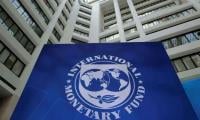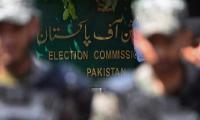LAHORE: Nothing has changed much on the economic front after successful completion of two elected government tenures in Pakistan. The economy still does not attract foreign investors without guaranteed rates of return. Institutions instead of strengthening have deteriorated over time.
Pakistan's economy needs foreign direct investment in the manufacturing sector where the country has competitive advantage in global markets. For this, the new rulers would have to revisit regulatory procedures.
The planners should take cue from Bangladesh, Vietnam and Cambodia that mostly import yarn and fabric, but their textile exports are higher than Pakistan.
We produce both yarn and fabric, and still we cannot convert the fabric in to high value-added apparel. Pakistan’s yarn and fabric exports have declined in the past decade because of high prices.
Despite that our planners think that we can convert that expensive yarn and fabric into garments and boost our exports. Planners know that Pakistan has advantage in coarse cotton yarn, but the world has moved beyond cotton to blended yarn made from cotton and manmade fibre. The fabrics made from various blended yarns are used to produce very high value apparel. We do not produce most of these yarns so we do not export high value apparel.
The economic planners should broaden their vision and instead of protecting the domestic basic textile industry (that failed despite best incentives) they should ensure availability of high quality blended fabric and yarn for exporters so they manufacturer high value apparel for exports.
Since majority of apparel exporters are tiny firms exporting garments and knitwear ranging from $0.3 million to $1 million; they cannot fulfil the cumbersome procedure of importing inputs through DTRE.
The fabric and yarn import should be allowed duty free on bank guarantee that should be released automatically when apparel produced from these materials are exported and export proceeds realised.
There should be no bureaucratic hurdles in this regard. Value-added exports are only going to pick up if the apparel exporters have access to inputs at globally competitive rates.
Instead of continuing with fiscal incentives that are a risky and generally costly means of attracting foreign investment, the government should ensure level playing field for the foreign investors. In the current scenario, we are patronising foreign investors through guaranteed rates of returns and thus denying level playing field to the local investors.
Or we give guaranteed duty protection to the foreign investors for establishing raw material plants in the country. This is an absurd policy as the investor on getting duty protection against imports sells that raw material to Pakistani exporters at higher than the global rates.
This way we ensure stressing our export sector. One example in this regard is the PTA plant by a multi-national enterprise that kept the rates of man-made fibre much above the global rates. It has similarly impeded the ability of the local textile industry to keep pace in blended textile products for over a decade.
Foreign investors are attracted to commercially profitable and politically stable environments. Moreover, in the absence of regime credibility, foreign investors implicitly discount the value of these incentives because they doubt their fiscal sustainability. Fiscal incentives are also corruption-prone.
There is a need to streamline and clarify legal and regulatory codes by eliminating duplicate, superfluous laws that increase the cost of doing business and invite corruption.
Private property rights need to be accessible to all citizens clearly defined and strongly enforced.
Taxation systems need to be further reformed so that they are easy to comply with and discourage income concealment and encourage profitable economic activity. Labour laws need to be reformed to allow for more flexibility.
Lastly, quality-efficient and cost-effective infrastructure is essential for a democratic, market-based system. These include telecommunication and transport systems, which need to be provided so that informal entrepreneurs benefit by becoming formal.
A representational image showing an oil refinery. — AFP/FileKARACHI: Pakistan Petroleum Limited has announced a...
P@SHA Chairman Zohaib Khan was the esteemed Chief Guest at Aptech 2023. — X/PASHAORG/FileKARACHI: Muhammad Zohaib...
PSX marked the listing of the Mahaana Islamic Index Exchange Traded Fund with a gong ceremony on April 23, 2024. —...
FPCCI Regional Chairman and VP Zaki Aijaz while speaking during a round table discussion on the challenges and...
This representational image shows Gold bars. — AFP/FileKARACHI: Gold prices in the local market fell by Rs7,800 per...
Security personnel walk past the US Federal Reserve building in Washington, DC on Oct 22, 2021. — AFPNew York:...







